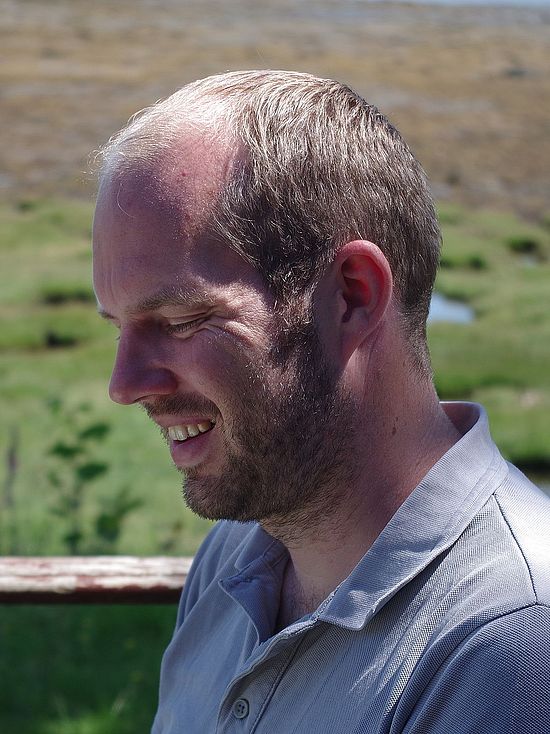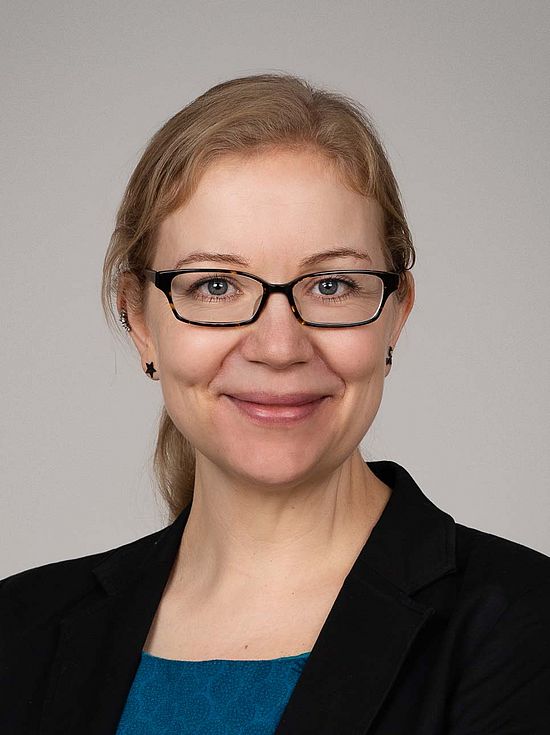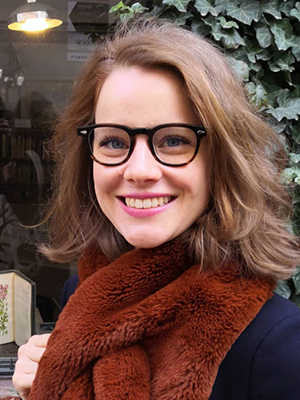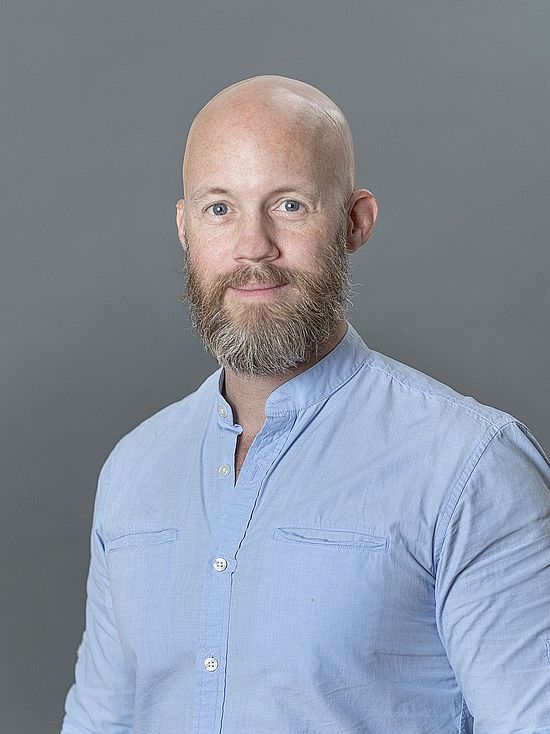Guest Researchers / Associated Researchers
The Europainstitut continuously expands its international networks in research and teaching through the association of researchers and project hosting. With its international fellowship program, the Institute regularly accepts guest researchers for a research stay at the University of Basel. These connections are particularly important for the promotion of young researchers (students, doctoral candidates and postdocs) in order to establish a network of scholarly contacts in the international scientific community.
Current Guest Researchers and Associated Researchers
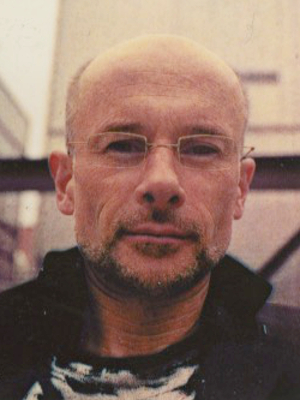
Associated Researcher | Since Okt 2020
Peter Cornwell
ENS-Lyon & IMCC-Westminster
Software Architectures
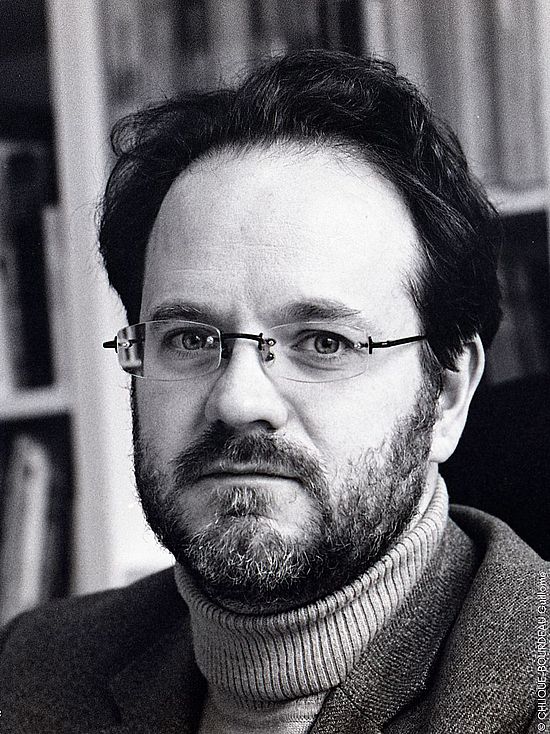
Associated Researcher
Guillaume Daudin
University of Paris-Dauphine (LEDa-DIAL)
Modern Economic History and Commercial Globalization
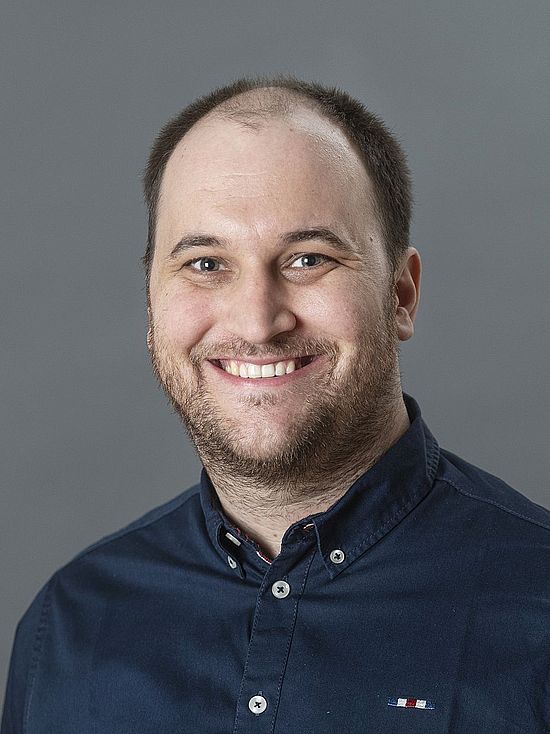
Associated Researcher
Dr. des. Christian Futter
History of France in the 18th and 19th centuries, Digital Humanities
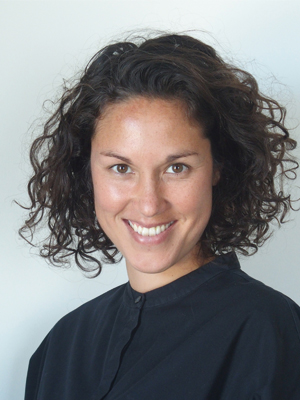
Associated Researcher
Christelle Genoud
King’s College London
International Relations and Human Rights
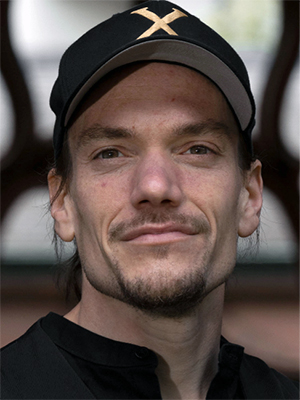
Associated Researcher
Flavio Häner
Canton of Basel-Stadt
Civil Protection and Disaster Risk Management
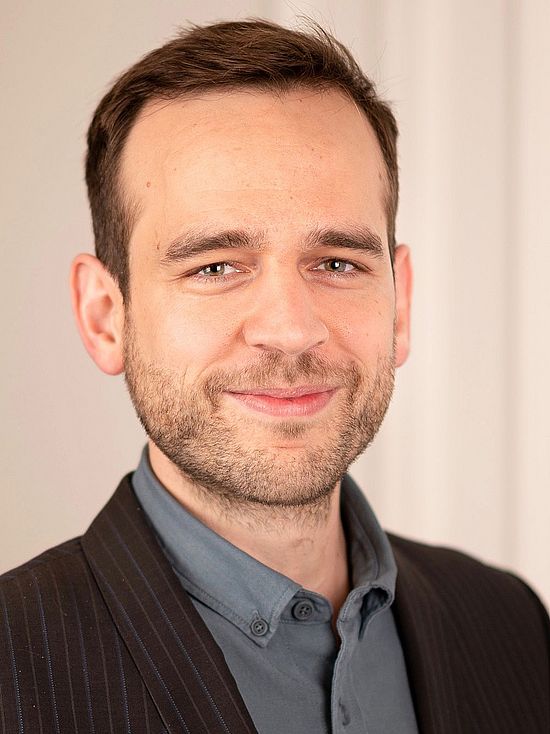
Associated Researcher
Benedict Vischer
University of Zurich
International Public Law & Legal Philosophy
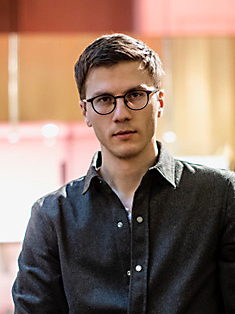
Associated Researcher
Séveric Yersin
University of Basel
European history of the 19th and 20th century
Previous Guest Researchers and Associated Researchers
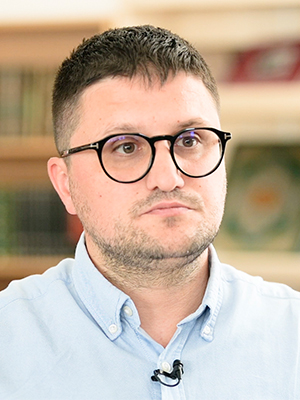
Gentjan (Genti) Skara is a lecturer of EU Law and Competition Law at the Department of Law, Bedër University College, Albania. He holds an LLB from University of Tirana (Albania), an MA in European Studies from Epoka University (Albania) and an LLM in "South East European Law and European Integration" from University of Graz. He received a PhD from the University of Ferrara in 2020. A revised version of it was published by Springer Nature as a monography titled "Europeanisation of Private Enforcement of Competition Law: The Case of Albania" in 2022. At the Institute for European Global Studies, Genti worked on a project titled "The Enforcement of Digital Markets Act and its compliance with Competition Law". In his project, he discussed the rationale and the necessity for the regulation of the digital technology development in the EU digital market. Moreover, the project analyzed the enforcement of the Digital Markets Act and its compliance with competition law, focusing on the need of competition policy, law and enforcement in the digital sphere. Genti's visiting fellowship is part of the thematic focus of the Katekisama program "Global Convergences: Cultures and Politics of AI in Globality Research".
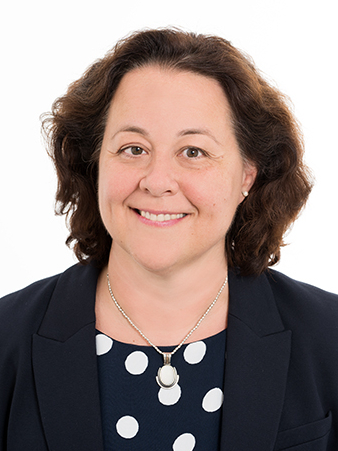
Kerstin von Lingen is professor for contemporary history at the University of Vienna (research area "Dictatorships – Violence – Genocide"). Before, she worked at the Cluster of Excellence "Asia and Europe in a Global Context" as well as the History Department at the University of Heidelberg. At the Cluster, she led an independent research group on war crimes trials in Asia, resulting in four PhDs. She was guest professor at the ULB in Brussels (2016) and Vienna (2017) as well as fellow at the Lauterpacht Centre for International Law, Cambridge (2018 and 2022). From December 2015 to January 2016, she was also a visiting fellow at the Institute for European Global Studies in Basel. Her research focuses on the history of genocide and violence, especially the Holocaust, on decolonization (focus Asia), contemporary history of law, studies of memory, identity and apology, and on migration and forced labour. Her latest project deals with "Displacement and Resettlement after 1945".
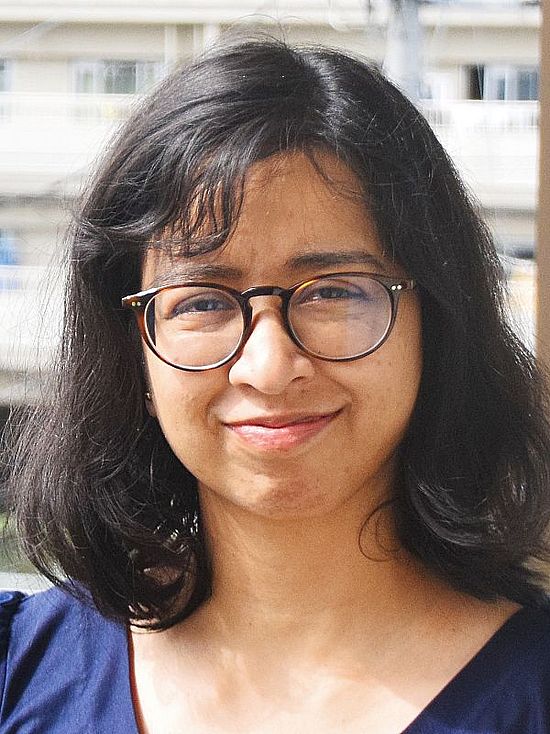
Maumita Banerjee is a researcher at Waseda University (Japan). She received her Ph.D. from the Department of Political Science at Waseda University. She is a historian of modern Asia, specializing in Japan and colonial India. Her work and research explore the comparative history of India and Japan through the lens of sartorial culture. Her research interests include dress politics, modern nationalism, gender, and material culture.
She has held visiting fellowships at Harvard Yenching Institute (USA) and the Sainsbury Institute for the Study of Japanese Arts and Culture (UK).
At the Institute for European Global Studies, Maumita Banerjee will be working on a project entitled "Assemblages and Global Flows: Sartorial Nationalism of Japanese and Indians, 1870s-1920s", in which she will be establishing a crucial link between sartorial politics and transnational political ideologies in Japan and India form the 1870s to the 1920s. Her visiting fellowship is part of the thematic focus of the Katekisama program "Global Crossings: Islands and Corridors, Life and Goods in Globality Research."
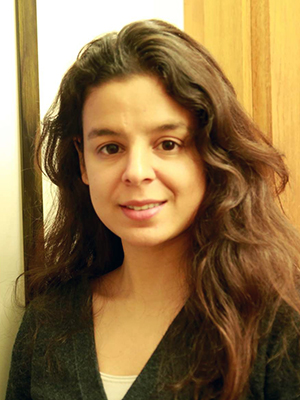
Nivi Manchanda is a Senior Lecturer (Associate Professor) in International Politics at Queen Mary University of London. She is interested in questions of race, empire, and borders and has published in, among other journals, International Affairs, Security Dialogue, Millennium, Current Sociology, and Third World Quarterly. She is the co-editor of Race and Racism in International Relations: Confronting the Global Colour Line (Routledge, 2014). Her monograph Imagining Afghanistan: the History and Politics of Imperial Knowledge (Cambridge University Press, 2020) was awarded the L. H. M. Ling First Outstanding Book Prize by the British International Studies Association. She sits on the editorial board of International Studies Quarterly, Cambridge Review of International Affairs, and Security Dialogue. She was the co-editor in chief of the journal Politics from 2018 to 2021.
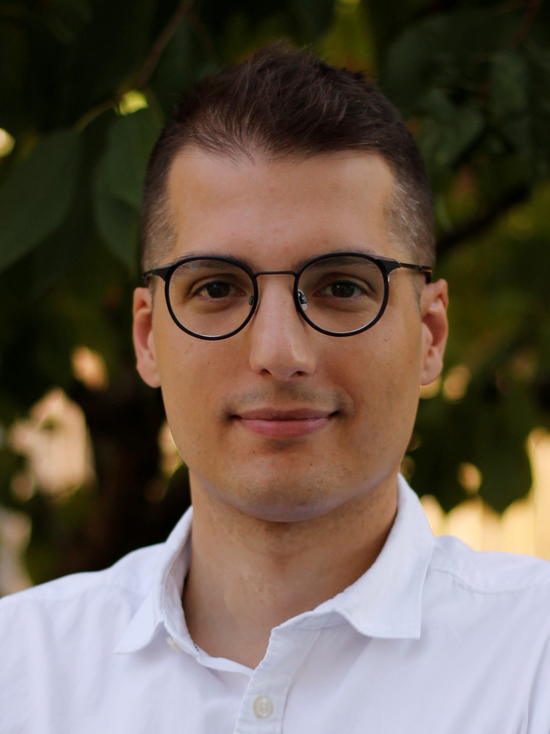
Vedran Duančić specializes in modern intellectual history and history of science, with a particular interest in the intersection of science and politics. He holds a PhD from the European University Institute in Florence and an MA from the Central European University (then still in Budapest). He was a postdoctoral researcher at the Institute for the History and Philosophy of Science at the Croatian Academy of Sciences and Arts and was awarded visiting fellowships at the American Philosophical Society in Philadelphia and the Herder Institute for Historical Research on East Central Europe in Marburg. His work on the involvement of geography in nation-building projects in interwar Yugoslavia resulted in the monograph Geography and Nationalist Visions of Interwar Yugoslavia (Palgrave Macmillan, 2020). His research interests have shifted to the post-1945, socialist period, and he published on science popularization and the history of biology, including the reception of Lysenko’s ideas, in early socialist Yugoslavia.
At the Institute for Global European Studies, Dr. Duančić will be working on a history of medical cooperation within the Non-Aligned Movement during the Cold War, using socialist Yugoslavia as an entry point to a global network of circulation of medical knowledge, personnel, and equipment in light of post-colonial dependencies, national liberation and state-building efforts, global socialism, and contemporary developmental policies.
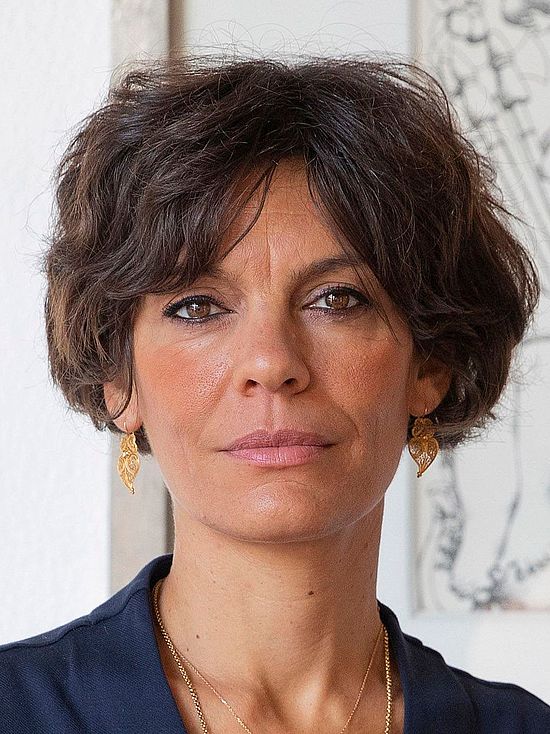
Raquel Varela is a historian, researcher and university professor at Universidade Nova de Lisboa / IHC and honorary fellow of the International Institute for Social History (Amsterdam). She was a visiting professor at the Postgraduate Programme at Universidade Federal Fluminense, where she was responsible for Global Labor History. She is a professor at ISEC, in the area of Labour Relations. She coordinates the international project of global labor history "In The Same Boat? Shipbuilding industry, a global labour history", at ISSH Amsterdam, The Netherlands. She has authored and coordinated 34 books on global labor history, the welfare state, the history of Portugal, as well as the history of Europe in the 20th century. In 2020 she was awarded with a Simone Veil Grant at the University of Munich, Germany, and the Iberian Prize of ASICOM/University of Gijon, Spain, for her role in global history. During her fellowship at the Institute for European Global Studies, Dr. Varela will carry out research within the project "The Divisive Power of Citizenship" (Project Leader: Prof. Dr. Madeleine Herren-Oesch), in particular giving a contribution to the study of exchanges in the ports of Goa and Mozambique during World War II.
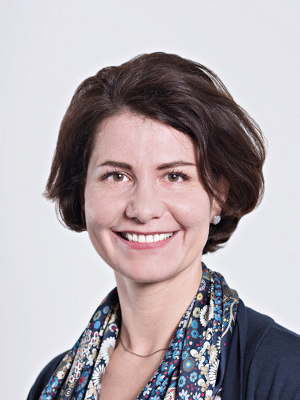
Polina Lukicheva studied Sinology, Art History and Philosophy in Moscow, Shanghai and Berlin. She holds a PhD in Comparative History of Science from the University of Zurich. Her Thesis is titled «‹Der Himmel hat von sich aus keine Ordnung des Vorne und des Hinten› — Studien zur Kategorie des Räumlichen in Erkenntnistheorie und Ästhetik im China des 17. Jahrhunderts». Polina Lukicheva joins Prof. Ralph Weber’s team in the research project on «European Studies in a Global Perspective». Her research focuses on European Studies in Russia and China.
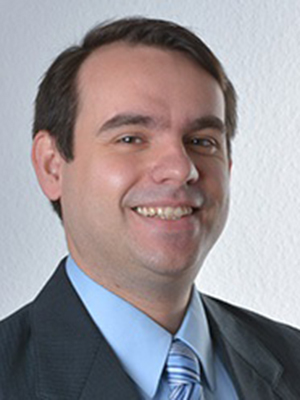
Dr. Stoyan Panov is a lecturer in International Law and Jurisprudence at University College Freiburg, University of Freiburg. He received his PhD (Law) at University of Birmingham (the UK), LL.M. in Leiden University, Georgetown University, and DePauw University. His research interests cover the areas of EU Law, Human Rights Law, International Criminal Law, Public International Law, the Rule of Law, Anti-Corruption mechanisms, and international security.
His current project is entitled “Two Is Not Enough, Three is Too Many?: An Analysis of EU’s Multi-layered Response to the Backsliding of Democracy and the Rule of Law in Central and Eastern Europe” and primarily concerns the envisaged framework of the triangulation of mechanisms currently planned on EU level as regards the backsliding of the rule of law in Central and Eastern Europe: the establishment of the European Public Prosecutor’s Office (EPPO), the Cooperation and Verification Mechanism applicable in Bulgaria since 2007, and the envisaged mechanism to protect EU’s budget in deficiencies as regards the rule of law in Member States.
![[Translate to English:] Konstantin Zamyatin](https://europa.unibas.ch/fileadmin/user_upload/europa/Personen/Visiting_Fellows/Konstantin-Zamyatin.jpg)
Dr. Konstantin Zamyatin is an Adjunct Professor at the University of Turku, Finland. Dr. Zamyatin holds a law degree and did his PhD in Finno-Ugrian Studies at the University of Helsinki. His PhD thesis was about the official status of minority languages, based on the empirical case of Russia’s Finno-Ugric republics.
Konstantin Zamyatin’s current research interests are ethnic politics and language politics in Russia and other countries of the former Soviet Union. He currently works on completing a monograph tentatively entitled «Language Policies in the Finno-Ugric Republics of Post-Soviet Russia: Revisiting Revivalism».
Dr. Oleksandr Moskalenko is a post-doc researcher focusing on the study of the European Union’s relations with its Eastern Neighbours. He has a background in law with a Ph.D. in International Law (2006, Institute of legislation of the Parliament of Ukraine, Kyiv) and a Ph.D. in European Law (2017, University of Turku, Finland). Dr. Moskalenko's current project is titled ”The EU Environmental Conditionality for the Association Agreements with Its Neighbours”. The project is interdisciplinary and provides insight into the format of EU relations with Ukraine, Moldova and Georgia with regards to the environmental policies. The project is double-fold as it includes the perspectives from both sides. From the side of EU studies, the project aims at identifying a particular pattern of the EU’s environmental conditionality for these countries as well as at studying the interconnection of this conditionality with the EU’s international identity and its economic interests in the region. From the side of the EU neighbours the project aims at shedding the light on the implementation process as well as its challenges.
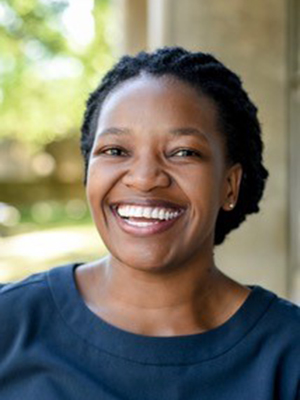
During her fellowship at the Institute for European Global Studies and the Centre for African Studies at the University of Basel, Lerato Posholi worked on her doctoral research on the entanglements of knowledge and power and their implications for the curriculum. In doing so, she contributed to Prof. Ralph Weber's research area European Global Knowledge Production.
Lerato Posholi stayed at the Institute for European Global Studies as a PhD Candidate at the Centre for Researching Education and Labour (REAL Centre) at the University of the Witwatersrand in Johannesburg. Her research focuses on curriculum studies, philosophy of education, epistemology and sociology of knowledge. For her MA research, Lerato Posholi looked at “The relationship between courage and philosophy in Plato’s Republic.”
Her fellowship at the Institute for European Global Studies and the Centre for African Studies of the University of Basel was funded by the Oumou Dilly Foundation. Since November 2020, she is SNSF Fellow at the Institute in the research project "Reversing the Gaze".
![[Translate to English:] Vasileios Syros](https://europa.unibas.ch/fileadmin/user_upload/europa/Personen/Visiting_Fellows/Vasileios-Syros.jpg)
Dr. Vasileios Syros will be working together with Ralph Weber on the collaborative SNF (Scientific Exchanges) project “The Value of Comparison: Global History and Comparative Political Theory.” Syros is a Docent in Political History at the University of Helsinki and a Senior Fellow at the Descartes Centre for the History and Philosophy of the Sciences and the Humanities at Utrecht University.
His academic interests lie in the comparative study of medieval and early modern Christian/Latin, Jewish, and Islamic political thought. Syros has published Marsilius of Padua at the Intersection of Ancient and Medieval Cultures and Traditions of Learning (University of Toronto Press, 2012); Die Rezeption der aristotelischen politischen Philosophie bei Marsilius von Padua (Brill, 2007); and Well Begun is Only Half Done: Tracing Aristotle’s Political Ideas in Medieval Arabic, Syriac, Byzantine, and Jewish Sources (ACMRS, 2011). His work has appeared in a number of international peer-reviewed journals, including Viator, Journal of Early Modern History, Medieval Encounters, Journal of World History, Philosophy East & West, History of Political Thought, and Revue des Études Juives.
Syros has taught previously at Stanford University, McGill University, The University of Chicago, and the École Pratique des Hautes Études in Paris.
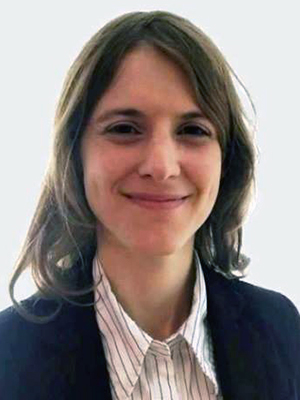
Lucie Chamlian is a fellow at the Research Group on International Political Sociology at the University of Kiel (Germany). Her main research interests are: International Relations and Political Sociology, Critical Security Studies, European Integration and IR-Sociology of Knowledge. She is the co-editor of a Special Issue on Foucault Meets EU Studies which appeared in Global Society. In Kiel, she also worked on a project on “Perception and Reception of Finitude”.
During her research stay at the Institute for European Global Studies Lucie Chamlian will work on “The problematisation of 'UK' dominance in knowledge-production in EU Studies.“
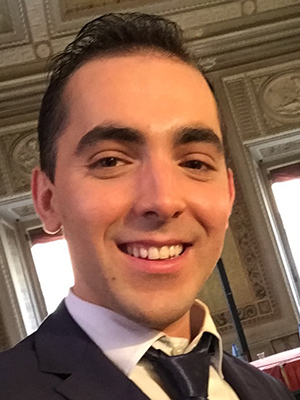
Dr. Denard Veshi is a fellow at the Minerva Center for the Rule of Law under Extreme Conditions at the University of Haifa (Israel). His research areas include comparative law, medical law, refugee law, and he is specialized in interdisciplinary research.
Previously, he was a Teaching-Assistant at University of Bologna, School of Economics. Denard holds a M.Sc. (cum Laude) from University of Bologna, School of Law and a M.A. in Insurance and Welfare Law from LIUC University. In addition, in January 2016, he was awarded with a doctor title from the Joint International Doctoral Degree in “Law, Science and Technology”.
As an International Fellow at the Institute for European Global Studies, Denard will be working on the project “The Collective Action in the Management of Refugee Flow: An Economic and Legal Comparative Approach”.
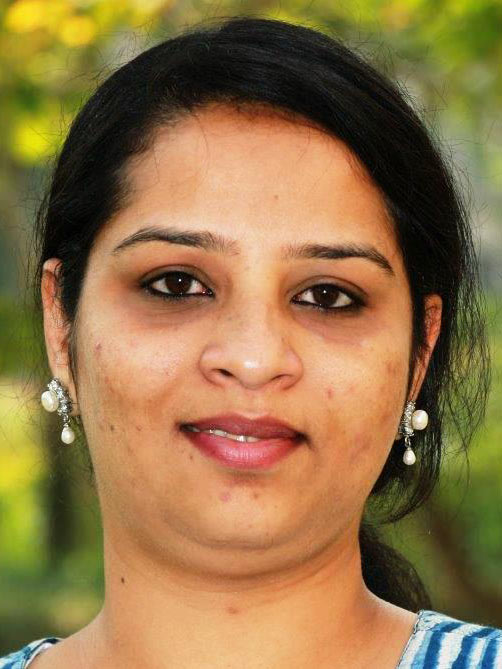
Dr. Divya Balan is an assistant professor of International Studies at the Department of Social Sciences of FLAME University in Pune, India. She is a Political Science graduate and has her Masters and M.Phil. in International Relations. She has received her Doctoral Degree in European Studies from the prestigious Jawaharlal Nehru University, New Delhi, India. Dr. Divya Balan has authored several articles in research journals, contributed chapters to books and monographs and has also presented research papers in numerous national/international conferences. Her research interests are in international and domestic migration, migration policy, Indian diaspora, diaspora politics, European integration, as well as the disciplinary histories of International Relations and European Studies.
As a Visiting Fellow at the Institute for European Global Studies, Divya Balan will be working on the topic «Teaching and Researching on European Studies in Indian Universities: A Participant Observation Approach to Understand the State of European Studies Outside Europe».
Prof. Dr. Atsushi Shibasaki is a professor at the Faculty of Global Media Studies (GMS) of Komazawa University in Tokyo. His research interests include the historical development of international cultural relations and policies in modern Japan, philosophical investigations of the making of global and international consciousness in modern Japan, as well as the theoretical analysis of the historical development of International Relations theory. Among his ongoing research subjects is the political and cultural influence of Bob Dylan. Atsushi Shibasaki has published three books and one co-edited volume in Japanese. Until September 2018, he works as a guest professor at the Institute for European Global Studies.

Prof. Dr. Toshiki Mogami (Ph.D. in Law, University of Tokyo) is Professor of International Law and Organization and taught for more than three decades at the International Christian University, Tokyo, where he was also Director of the Peace Research Institute and the Rotary Peace Center for many years. In the meantime, he was Visiting Researcher at Columbia University, New York, a private peace research institute in Sweden, and most recently at the Max Planck Institute for Comparative Public Law and International Law in Heidelberg. He was also president of a few academic organizations in Japan.
His research covers a wide area of topics: most principally the law and institutions of the United Nations system, international security law, theory of international law, among others. Recently, he has been deepening his interest in the history of international law and of international organization. He has written a large number of books (all in Japanese) such as “International Organization” (de facto 4th ed.), “Humanitarian Intervention”, “The Age of International Constitutionalism” and quite a number of articles, including some book chapters written in English, such as “Perpetuum Mobile: Before and After Global Constitutionalism” (CUP, 2018), “Japan (and international law)” (OUP, 2019).

Dr. Fiona B. Adamson is a Reader (Associate Professor) of International Relations at SOAS, University of London. Her research interests are in migration, transnationalism, diaspora politics, international relations theory, and global peace and security. Adamson’s work has appeared in outlets such as European Journal of International Relations, International Migration Review, Journal of Ethnic and Migration Studies, International Security, International Studies Review, Political Science Quarterly, Journal of Global Security Studies, Cambridge Review of International Affairs and numerous edited volumes.
At SOAS, Adamson co-convenes the London Migration Research Group (LMRG) and leads a research cluster on Migration, Mobility and Membership. She was Head of the SOAS Department of Politics and International Studies 2010-2013. Adamson serves on the governing councils of the Migration and Citizenship and International History and Politics sections of the American Political Science Association, and on the editorial board of the American Political Science Review. She received her MA, MPhil and PhD at Columbia University and her BA from Stanford University.
As a Visiting Fellow at the Institute for European Global Studies, Adamson will be working on the project “Diasporic Europe: Migration, Transnational Assemblages and Disaggregated Sovereignty.”

Dr. Julian Eckl is a post-doctoral researcher and lecturer at the University of Hamburg. His research interests include: global health governance, the society of states, diplomacy, public-private partnerships, and multilateral international organizations. He was trained as a political scientist but draws also on neighboring fields like ethnology/anthropology, history, and science and technology studies. From a methodological point of view, much of his recent research combines participant observation with the analysis of historical material. His main research project is a political ethnography of sites of global health governance; it investigates the way in which the participants try to deal with the practical challenges that this kind of political work entails.
During his stay in Basel, he will analyze empirical material that was collected in the course of this project. A particular focus will be on micro-practices of sovereignty and on the role of “Europe” in global health governance.
Prof. Dr. Cong Cao (PhD in Sociology, Columbia University) is Professor at the School of Contemporary Chinese Studies, University of Nottingham Ningbo, China. Educated in both China and the U.S., and in both the natural and social sciences, he has worked at the University of Oregon, the National University of Singapore, the State University of New York, and the University of Nottingham. His research interests spread across the following areas: the Sociology of Science, Technology, and Innovation; China Studies; Technological Entrepreneurship; Talent Migration; Qualitative and Quantitative Research Methods; and Media Studies. While in Basel, Cong Cao will be working on a book manuscript on Genetically Modified China (under contract with Columbia University Press) and explore various research cooperations with Prof. Ralph Weber concerning the nexus of science, politics, and global knowledge production. He is at the Institute on a grant by the Swiss National Science Foundation (International Short Visits) and in cooperation with Eurelations.

Dr. Andrea Rehling is a researcher at the Leibniz Institute of European History Mainz and principal investigator for the research project "Knowledge of the World – Heritage of Mankind: The History of UNESCO World Cultural and Natural Heritage", funded by the Leibniz Competition of the Leibniz Association. In 2009, she received her doctoral degree with a thesis on German corporatism between 1880 and 1980 at the Eberhard Karls University of Tübingen. She has been a postdoctoral researcher at the University of Mannheim and a junior fellow at the Institute for Advanced Study in Constance (Konstanz). At the Institute for European Global Studies, she is advancing her research and book project “UNESCO World Cultural and Natural Heritage: Cosmopolitanization of Collective Memory”. The project takes the World Heritage Program governance institution as a prism to investigate the shifting of structures, institutions and actors, perceptions and agency. The multidisciplinary approaches, the focus on governance and the analysis of actors and agencies in global contexts make the Institute for European Global Studies a perfect environment for her research.

Alfredo dos Santos Soares, PhD, is a postdoctoral researcher, currently affiliated with the Center for Research and Development on Law and Society (CEDIS) at the Faculty of Law of the Universidade NOVA de Lisboa. He is mostly concerned with the legal and socio-political aspects of the migratory phenomenon, especially the "responsibility to protect" forcibly uprooted people in contexts of armed conflicts, climate change impacts, and large-scale development projects. At the Institute for European Global Studies, he aims to advance the study of global governance of forced migration and its possible implications for the European Union.

Prof. Dr. Dimitry Kochenov holds a Chair in EU Constitutional Law at the Faculty of Law, University of Groningen. Besides, he holds a visiting professorship at the College of Europe in Natolin and chairs the Investment Migration Council, a global association of investment migration professionals. His research focuses on Comparative and EU Citizenship Law, Principles and Enforcement of EU Law with an emphasis on the Rule of Law, EU External Relations Law, and the Law of the EU's Overseas. Dimitry Kochenov consults governments and international institutions and organizations. During his stay at the EIB, he will be working on the project “Conceptualizing the Inter-Citizenship Paradigm of Belonging”. For more information on Dimitry Kochenov please visit www.kochenov.eu.

Prof. Dr. Stephanie Anderson is Associate Professor for Political Science at the University of Wyoming. She has studied at Georgetown University and at the London School of Economics and Political Science. She holds a PhD from Cambridge University. Her research focuses on the European Union as an international actor, international relations, and security studies. During her stay at the Institute for European Global Studies, she worked on her project "When Narratives Collide: How news coverage and social media in EU crisis management missions affect the EU's identity at home and abroad".

Dr. Anthony Boanada-Fuchs is a Post-Doc at the Center for Metropolitan Studies of University of São Paulo. He completed a PhD at the Graduate Institute of International and Development Studies, Geneva. His research combines technical understanding (housing, urban planning) with an institutional research design derived from political science. More specifically, he is interested in urban and housing policies, their genesis, and their effects on cities. His countries of interests are India, Brazil, and South Africa. "A Hidden Legacy – How European Urban Planning Ideas Persist in Contemporary India" was the name of his research project at the Institute for European Global Studies.

Dr. Claudia Bernardi is currently postdoctoral fellow at Harvard University. She holds a PhD in Euro-American Studies from the University of RomaTre (Italy), where she studied History and Society, and is also Research Consultant for the "Studio Roma. Programma transdisciplinare sulcontemporaneo" at the Istituto Svizzero in Rome. At the Institute for European Global Studies, she pursued her research on a project on "Making regions of mobility. The European case in the global history of guest workers".

Dr. Alison Carrol currently teaches European History at Brunel University, London. She studied at the universities of Exeter and Rennes II (Haute Bretagne), and completed her PhD at the University of Exeter in 2008. She was Junior Research Fellow in History at Murray Edwards College, University of Cambridge, and Lecturer in Modern European History at Birkbeck, University of London. At the Institute for European Global Studies, Alison Carrol worked on the project "Beyond Nations: an entangled history of European borderlands, 1918-1989".

Dr. Francesca Zilio holds a PhD in the History of International Relations from the Sapienza Università di Roma and the Freie Universität Berlin. Her research foci are Italian, Swiss and Western German foreign policy after the Second World War. Her book "Roma e Bonn fra Ostpolitik e CSCE 1969-1975" (Rome and Bonn between Ostpolitik and CSCE 1969-1975) was awarded the price for the best doctoral thesis 2011-2013 by the Italian Society of International History. At the Institute for European Global Studies, she worked on Swiss image promotion abroad and the history of the "Organisation of the Swiss Abroad".
Dr. Kerstin von Lingen is a historian and works at Heidelberg University at the Cluster of Excellence "Asia and Europe in Global Kontext". Since 2013, she is the leader of the Junior Research Group "Transcultural Justice: Legal Flows and the Emergence of International Justice within the East Asian War Crimes Trials, 1946-1954". In the group, four doctoral theses are developping, dealing with Soviet, Chinese, Dutch and French War Crimes Trials in Asia. At the Institute for European Global Studies, she conducted research on the genesis of the concept of "crimes against humanity".
Marijke de Pauw finished her Master's degree in Law at the Vrije Universiteit Brussel in 2010 and is now a PhD researcher there. In spring 2015, she was Visiting Research Scholar at the University of California, Berkeley. Her research interests include human rights, migration, and the rights of the elderly.
Charlotte Bruckermann obtained a PhD in Anthropology from the University of Oxford in 2013. From 2012 to 2014, she worked as a researcher and lecturer at the London School of Economics. In 2014-2015 she was a fellow at re:work, an international research centre for ‘Work and Human Lifecycle in Global History’ at Humboldt University in Berlin. Among her research interests: Chinese anthropology, rituals, work, the household, gender, relations, economic change and postsocialism.

Prof. Dr. Christiane Brosius holds the Chair for Visual and Media Anthropology of the Cluster of Excellence "Asia and Europe in a Global Context" at Heidelberg University. Among others, she is Speaker of the Research Area "Public Spheres". In her research, she explores the following topics: Media and visual culture in South Asia (mainly India and Nepal), urban anthropology, diaspora and ritual studies.

Edward William Cavanagh, PhD, is a lecturer at the University of Ottawa, Canada, specialising in comparative histories of colonialism, settler colonialism, and imperialism. At the Institute for European Global Studies, he advanced his research on “Empire’s Companies: Settler Colonialism and Property Law in World History”. He concurrently holds the Trillium Foundation Scholarship and the R. Roy McMurtry Fellowship for Canadian Legal History. He is the co-founder and managing editor of Settler Colonial Studies and his most recent book, Settler Colonialism and Land Rights in South Africa, was published by Palgrave Macmillan in 2013.

Michael J. Geary, PhD, is Assistant Professor of Modern Europe and the European Union at Maastricht University, Netherlands. He received his doctoral degree from the European University Institute, Florence, Italy. His research project, entitled "Integration or Disintegration? Why the European Union needs a Post-enlargement Policy" explored why the European Union needs a Post-enlargement Policy to deal with the multiple rounds of accession since the early 1970s. Amongst other fellowships, he was awarded the Global Europe Fellowship at the Wilson Center in Washington, DC, a Fulbright-Schuman Fellowship at the Catholic University of America (DC) and a European Parliament-Bronisław Geremek Research Fellowship at the College of Europe in Warsaw. He is the author of two books as well as articles on EU integration, enlargement and EU-US relations.

Lien Ling-ling, PhD, is Associate Research Fellow at the Institute of Modern History at the Academia Sinica in Taipei, Taiwan. She is particularly interested in modern China, women’s history, business history and urban culture history. At the Institute for European Global Studies, she advanced her research project “Enemy Subjects: Civilian Internment Camps in Occupied Shanghai during the Pacific War”. Since 2010, she edits the journal Research on Women in Modern Chinese History and manages the database project Early Chinese Periodicals Online.

Donna R. Gabaccia, PhD, is Professor of History and former Director of the Immigration History Research Center at the University of Minnesota, Minneapolis, USA, with with a focus on international migration studies, American studies, comparative gender and world history. She holds a doctoral degree in History from University of Michigan, USA, and has received many awards, including the 2013 Theodore Saloutos Prize for the best book in American Immigration History. In her research at the Institute for European Global Studies, she focused on the project “Imagining Nations of Immigrants” and aimed to explain why the U.S. features immigration so prominently in its histories and myths about itself.
Rainer F. Buschmann, PhD, is Professor of History at the California State University Channel Islands, USA. At Channel Islands, he was a founding faculty member of the history program. His research interests include European perceptions of the Pacific Ocean, with in-depth analyses on the global histories of the world's oceans. He holds a doctoral degree in history and a master degree in anthropology from the University of Hawaii. In 2013, he started a new project focusing on Portugal and the Pacific ("Iberian Visions of the Pacific") while serving as a Visiting Fellow in the Institute of Social Science at the University of Lisbon.

Jeremy Prestholdt, PhD, is Associate Professor of African and Global History at the University of California, San Diego, USA. He specializes in African, Indian Ocean, and global history with a thematic focus on consumer culture and politics. He holds a doctoral degree in African History from the Department of History at Northwestern University, Chicago, USA. Among other awards, he has received a Rockefeller Fellowship and a National Endowment for the Humanities Fellowship. At the Institute for European Global Studies he advanced his research project “Politics of the Soil: Kenya, Decolonization, and Autochthony Discourse”. It explores the culture of political engagement in Kenya since the late colonial era and addresses the linking of politics and identity to physical space.
Nathan Marcus, PhD, is a Postdoctoral Research Fellow at the Hebrew University of Jerusalem, Israel. He is specialized in Financial History, with a regional focus on Austria. He holds a doctoral degree in Modern European History at New York University, USA. At the Institute for European Global Studies, he initiated his research project “The Births of Schilling and Deutschmark: a Social and Financial History of Austrian and German Currency Reforms, 1945 – 1955”. Apart from Economic and Financial History, he is particularly interested in the History of Sports and Nationalism.

Allison Drew, PhD, is Professor at the Department of Politics at the University of York, Heslington, United Kingdom. Her research focuses on twentieth-century and contemporary Africa, particularly the dynamics between African states and social movements and struggles over development. She has a doctoral degree in Political Science from the University of California, Los Angeles, USA. At the Institute for European Global Studies, she advanced her research project “Communism, Violence and Democracy in Algeria and South Africa”, which follows the political trajectories of two African liberation movements as they moved from non-violent protest to armed struggle.
Jessica DeCou, PhD, holds a doctoral degree in theology at the University of Chicago Divinity School, USA, and is specialized in the evolving relationship between religion and culture in the modern period. At the Institute for European Global Studies, she conducted research for her book “'A Fantastic Affair': Karl Barth in America, 1962,” which provides a chronicle of Barth's sole visit to the U.S. in 1962 while also reflecting on the changing landscape of religion in Western culture over the past half century.

Prof. Dr. Roland Wenzlhuemer is Professor of Modern History in the Department of History at Ludwig-Maximilian University of Munich. Before that, he was Professor of Modern History (with a focus on the 19th and 20th centuries) at the Department of History at the University of Heidelberg. Besides that, he was principal investigator and leader of the research group "Ships as Floating Transcultural Spaces" at the Cluster of Excellence "Asia and Europe in a Global Context". From 2012 to 2014, he was a Fellow in the Heisenberg-Program of the German Research Foundation (DFG) at the Department of History in Heidelberg.
Prof. Dr. Matthias Middell is Professor of History and Director of the Global and European Studies Institute at the University of Leipzig, Germany. His research focuses on Global History and its Methodology, History of Cultural Transfers, History of Historiography and Universities. He holds a doctoral degree and a habilitation in Modern History. Furthermore he is Director of the Graduate School Global and Area Studies at the Research Academy Leipzig and Editor of the journals Comparativ. Zeitschrift für Globalgeschichte und vergleichende Gesellschaftsforschung and Geschichte.Transnational.

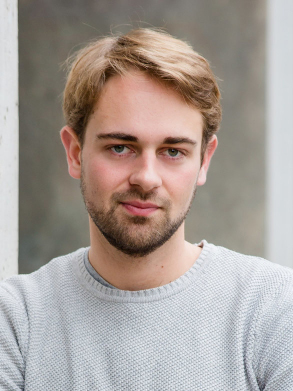
![[Translate to English:] William Foster](https://europa.unibas.ch/fileadmin/user_upload/europa/Personen/Assoziierte_Mitglieder/2025_Foster.jpg)
